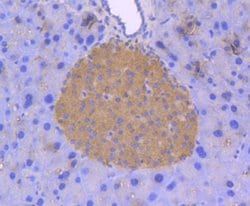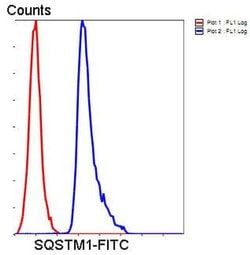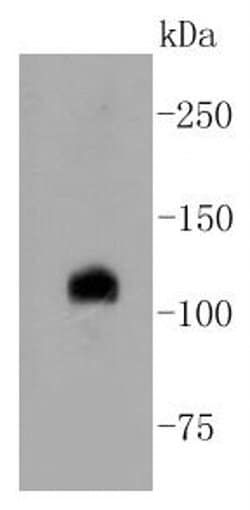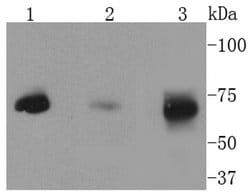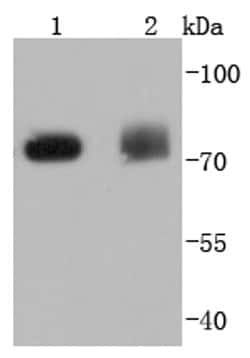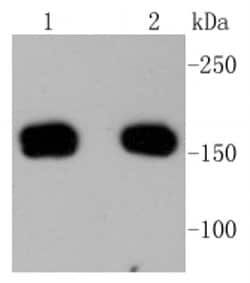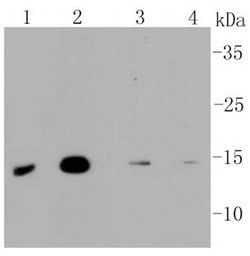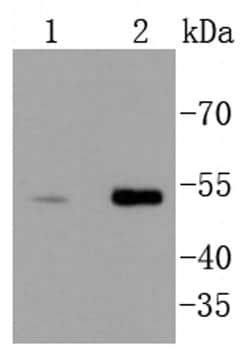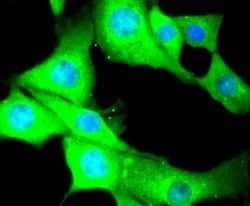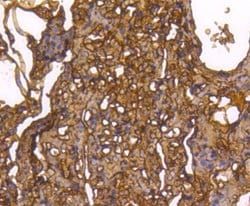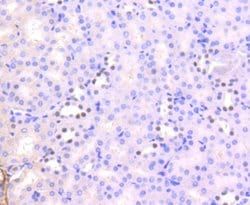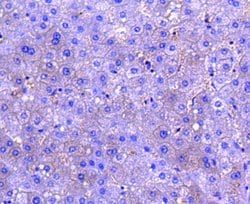MYLK Recombinant Rabbit Monoclonal Antibody (SU40-06), Invitrogen™
Manufacturer: Thermo Scientific
Select a Size
| Pack Size | SKU | Availability | Price |
|---|---|---|---|
| Each of 1 | PIMA532136-Each-of-1 | In Stock | ₹ 47,481.50 |
PIMA532136 - Each of 1
In Stock
Quantity
1
Base Price: ₹ 47,481.50
GST (18%): ₹ 8,546.67
Total Price: ₹ 56,028.17
Antigen
MYLK
Classification
Monoclonal
Concentration
1 mg/mL
Formulation
TBS with 0.05% BSA, 40% Glycerol and 0.05% sodium azide, pH 7.4
Gene Accession No.
Q15746, Q6PDN3
Gene Symbols
MYLK
Immunogen
Synthetic peptide within Human MYLK aa 1,865-1,914
Quantity
100 μL
Primary or Secondary
Primary
Target Species
Human, Mouse, Rat
Product Type
Antibody
Isotype
IgG
Applications
Flow Cytometry, Immunocytochemistry, Immunohistochemistry, Western Blot, Western Blot
Clone
SU40-06
Conjugate
Unconjugated
Gene
MYLK
Gene Alias
155 kda myosin light chain kinase homolog, 9530072E15Rik, A clone isolated from a chicken gizzard cDNA library which has high homology with the 3'-end sequence of the chicken gizzard myosin light chain kinase (MLCK) cDNA, The 5'-leader seqeuence derives from the intronic sequence of the MLCK gene., A930019C19Rik, AAT7, AW489456, kinase related protein, kinase-related protein, KRP, KRP/Telokin, MLCK, MLCK1, MLCK108, MLCK210, MSTP083, mylk, MYLK1, myosin light chain kinase, myosin light chain kinase, smooth muscle, Myosin light chain kinase, smooth muscle, deglutamylated form, myosin, light polypeptide kinase, nmMlck, smMLCK, smooth muscle myosin light chain kinase, smooth muscle myosin light chain kinase (61-kDa active fragment), smooth muscle myosin light chain kinase precursor (EC 2.7.2.37), telokin, unnamed protein product
Host Species
Rabbit
Purification Method
Protein A
Regulatory Status
RUO
Gene ID (Entrez)
107589, 288057, 4638
Content And Storage
Store at 4°C short term. For long term storage, store at -20°C, avoiding freeze/thaw cycles.
Form
Liquid
Description
- Recombinant rabbit monoclonal antibodies are produced using in vitro expression systems
- The expression systems are developed by cloning in the specific antibody DNA sequences from immunoreactive rabbits
- Then, individual clones are screened to select the best candidates for production
- The advantages of using recombinant rabbit monoclonal antibodies include: better specificity and sensitivity, lot-to-lot consistency, animal origin-free formulations, and broader immunoreactivity to diverse targets due to larger rabbit immune repertoire
- MYLK (MLCK) is a serine/threonine kinase that phosphorylates myosin regulatory light chains to assist in the production of contractile activity (myosin-actin interaction)
- MLCK is responsible for smooth muscle contraction via phosphorylation of a specific serine in the N-terminus of myosin light chains (MLC), an event that facilitates myosin interaction with actin filaments
- It is a central determinant in the development of vascular permeability and tissue edema formation
- In the nervous system it has been shown to control the growth initiation of astrocytic processes in culture and to participate in transmitter release at synapses formed between cultured sympathetic ganglion cells
- MLCK acts as a critical participant in signaling sequences that result in fibroblast apoptosis
- Smooth muscle and non-muscle isozymes are expressed in a wide variety of adult and fetal tissues and in cultured endothelium with qualitative expression appearing to be neither tissue- nor development-specific
- Non-muscle isoform 2 is the dominant splice variant expressed in various tissues
- The Telokin isoform, which binds calmodulin, has been found in a wide variety of adult and fetal tissues
- MLCK is probably down-regulated by phosphorylation
- The protein contains 1 fibronectin type III domain and 9 immunoglobulin-like C2-type domains.
